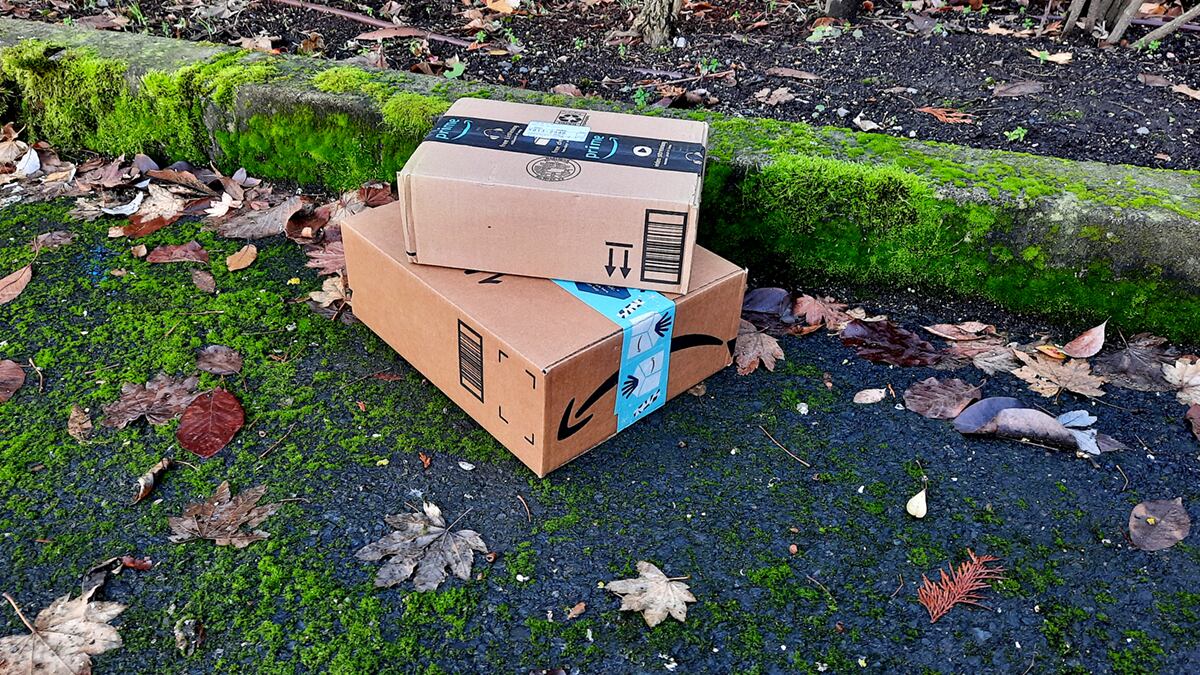On June 10, the Oregon Health Authority announced a COVID-19 outbreak at Amazon's Troutdale warehouse that has now lasted 25 weeks and infected 97 people with the virus, making it one of the largest workplace outbreaks in Oregon.
It's understandable why a reporter might want to reach out to some of the 4,500 employees at the warehouse to discuss working conditions at Amazon. The New York Times reported last week the online retail giant has hired more than 427,000 new employees worldwide, the largest hiring spree in American history and one driven by COVID's acceleration of the move to e-commerce.
But a reporter would have difficulty. Because WW has learned that entry-level workers at Amazon's Troutdale warehouse have for some time been required to sign nondisclosure agreements, legally binding contracts restricting what information employees can and cannot share publicly.
Nondisclosure agreements are rare for warehouse workers. But Amazon's NDA, which WW obtained, is so stringent that some lawyers believe it's the kind of contract you would expect between an employer and a software developer working on highly proprietary code, not one for a warehouse job where the primary requirement is an ability to lift heavy objects.
The NDA prohibits employees from acquiring, using, publishing, disclosing or communicating "any Confidential Information except as required in connection with Employee's work without the prior written approval of an authorized officer of Amazon."
"I haven't [previously] seen an entry-level warehouse employee be asked to sign an NDA," says Jess Giannettino Villatoro, political and legislative director at the Oregon AFL-CIO. "I would say that Amazon's is pretty egregious."
Amazon workplaces in Oregon have generated 54 COVID-related complaints from employees to Oregon Occupational Safety and Health since March. Those complaints triggered two Oregon OSHA inspections: one in Salem that concluded in August and did not result in a citation, and another at its Troutdale warehouse that began in late September and is still ongoing.
Separately, a Troutdale worker filed an OSHA complaint Nov. 12, claiming Amazon asked employees to sign additional confidentiality agreements before sending them home for reasons related to COVID-19.
"Employer is exposing employees to potential COVID-19 infection by failing to notify employees who have been in close contact with [a] sick employee that possible COVID-19 exposure has occurred," the employee said in the complaint. "Multiple employees have been told to sign a confidentiality agreement before being sent home."
Amazon says its policy helps protect customers. "As with many other companies, non-disclosure agreements are signed by Amazon employees when they are hired to help ensure customer privacy and for other business purposes," Amazon spokeswoman Anne Laughlin Carpita told WW. "The company has no requirements for employees to sign a non-disclosure document when they are notified they have a positive COVID test."
The Troutdale warehouse has consistently placed near the top of Oregon's list of COVID-19 workplace outbreaks since the Oregon Health Authority started publicizing those numbers in May. The state started disclosing such locations after WW first reported on the outbreak at the berry processor Townsend Farms in east Multnomah County.
OHA's latest weekly COVID outbreak disclosure, on Nov. 25, says Amazon's Troutdale warehouse is the source of 97 COVID-19 cases, making it the fourth-largest workplace outbreak in the state. The three larger outbreaks are all in state prisons.
In Oregon, Amazon employs over 9,000 people, KATU-TV reported in September, and is one of the largest tenants downtown, where both Amazon Web Services and Elemental (a division of Amazon) have offices.
The company's stock price is up 74% this year, giving it a market capitalization of more than $1.6 trillion.
Amazon required Troutdale warehouse employees to sign NDAs that prohibit them from sharing confidential information, which it defines as "proprietary or confidential information of Amazon in whatever form, tangible or intangible, whether or not marked or otherwise designated as confidential, that is not otherwise generally known to the public, relating or pertaining to Amazon's business, projects, products, customers, suppliers, inventions, or trade secrets."
It's not clear whether discussing health and safety conditions at Amazon—such as mask-wearing, which several Amazon workers have complained about—would violate the NDA. The document does make exceptions, saying that wages, hours and working conditions are not considered confidential.
Still, Portland lawyers describe the contract as "overreaching."
"That kind of wording puts almost no limit on it. Amazon could determine that anything is business and financial information," says David Sugerman, a civil lawyer in Portland who also teaches at Lewis & Clark Law School. "This is another tool that can really chill working people in protecting themselves in the workplace in not being exploited."
The threat of legal action for violating an NDA may be more psychological than tangible, however.
"The short answer is, in most cases, nothing happens," says Michael Fuller, a Portland attorney who has represented employees in several whistleblower lawsuits. "An employee who intentionally violates an NDA out of spite or for their own financial gain may face legal consequences. However, an NDA attempting to prohibit an employee from reporting unlawful workplace conditions is likely in violation of public policy and legally void. In my experience, large corporations like Wells Fargo and Google use NDAs largely as a deterrence."
Sugerman says managers can still wield the documents as a threat to employees who seek to speak out.
"A manager can use an NDA when it's not legitimate and say, 'You talk, we sue,'" Sugerman says. "I would definitely be concerned about whether a worker who signed this agreement might feel at risk for reporting."
Giannettino Villatoro says the NDA Amazon places in front of workers is particularly troubling in a job market where workers have fewer options.
"Any time when we have high unemployment, workers are at a greater risk for being exploited," Giannettino Villatoro says. "Especially if we're talking about entry-level warehouse workers, putting these contracts in front of them is often pretty intimidating."
